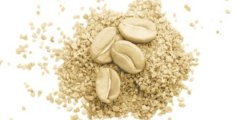What effect does drinking coffee have on the brain?

When the first coffee bean was picked, roasted, ground and brewed into mellow and elegant hot coffee, the invention, known as the most romantic, began to spread around the world. According to the statistics of the International Coffee Organization, the world consumes 400 billion cups of coffee every year, and 14000 cups are drunk every second.
In addition to enjoying the mellow taste of coffee, more people drink coffee to refresh themselves. Why is coffee refreshing? what is God? Does regular coffee have a negative effect on the brain? To answer this question, the home page needs to understand the metabolic process of the body's energy.
Our food intake is converted into energy in the body, and the final part is stored in adenosine triphosphate (ATP). The operation of various functions of the body comes directly from the energy provided by ATP hydrolysis. ATP in the body is hydrolyzed step by step to meet the energy needs of cells, that is, ATP-ADP (adenosine diphosphate)-AMP (adenosine monophosphate)-adenosine step by step hydrolysis. When the body needs less energy, adenosine can undergo reverse chemical reactions to re-synthesize ATP. Adenosine, a small molecule, is our body's rechargeable battery.
Every day, the human body needs about 100 to 150 moles of ATP to provide energy, when in fact, there is only about 0.2 moles of ATP in the body. In other words, every day, the ATP battery is constantly charging, discharging and recycling in our bodies.
Our nervous system needs ATP to provide energy when it works. Waking requires more ATP than sleep, and mental activity requires more ATP.
So when we engage in intense mental work, complex thinking, or lack of sleep, the synthesis of ATP in the brain will not keep up with the consumption of ATP. Before rest, the concentration of adenosine, the final hydrolysate of ATP, gradually increases.
Adenosine is also a neurotransmitter. After the content of adenosine increases in the nervous system, it will make people nervous, difficulty in concentration, anxiety, irritability, aggressive behavior, and decreased learning and memory. This is the body reminding us that it is time to have a rest.
Coffee is a natural adenosine receptor blocker, so that people do not feel the drowsiness caused by fatigue, difficulty concentrating and so on.
But obviously, this is a "palliative" measure, the blocking effect of caffeine does not reduce the concentration of adenosine, and if we continue to work in this case, its concentration will continue to rise. it may reach a point where caffeine can no longer be blocked, and drinking coffee will no longer be effective.
Is drinking too much coffee harmful to the brain?
Adenosine is not only a nerve inhibitor, but also a modulator of nerve repair, which regulates glutamate secretion, central nervous inflammation, blood-brain barrier permeability and so on. Long-term high levels of adenosine can lead to abnormal repair function of these nervous systems.
In other words, while refreshing by drinking coffee, it also rejects the request for rest of the nervous system, delaying the time for the nervous system to repair itself. Under the current medical conditions, once the human nervous system is damaged, it will be difficult to recover to the previous level.
Therefore, long-term excessive consumption of coffee is not recommended. People's tolerance for coffee varies from person to person. After studying caffeine in the Dietary guidelines for American residents, healthy people can drink 5 cups of coffee a day. Many domestic experts suggest that it is best not to exceed 3 cups a day (about 200 milliliters per cup).
Important Notice :
前街咖啡 FrontStreet Coffee has moved to new addredd:
FrontStreet Coffee Address: 315,Donghua East Road,GuangZhou
Tel:020 38364473
- Prev

The export of white coffee to China reached 500 million ringgit in the first three months.
(Kuala Lumpur, 29th) second Minister of International Trade and Industry Datu Seri Huang Jiaquan pointed out that in the first three months of this year, China's exports of white coffee to China have exceeded the total export volume of RM200 53 million last year, and is expected to reach the target of RM1 billion this year. He pointed out that the export volume of white coffee in the first three months of this year has reached 500 million ringgit, and many people are through e-commerce.
- Next

Representatives of Starbucks Coffee Co., Ltd. visited Weiyang District.
On the morning of March 30, responsible persons of Chengdu Starbucks Coffee Co., Ltd. and Xi'an Starbucks Coffee Co., Ltd. visited Weiyang District at the gracious invitation of District leaders and District Economic and Trade Bureau. The Starbucks inspection team listened to Liu Lei, deputy director of the District Economic and Trade Bureau, introduced the development of the business district in Weiyang District, and visited Sheng Longguang on the spot.
Related
- Can lightly roasted coffee beans be used to extract espresso? How finely should you grind high-quality coffee beans to make Italian latte?
- What is the difference between the world's top rose summer coffee and Yejia Shefi? What are the flavor characteristics of Yega Shefi coffee and Panama rose summer?
- The ceremony is full! Starbucks starts to cut the ribbon at a complimentary coffee station?!
- A whole Michelin meal?! Lucky launches the new "Small Butter Apple Crispy Latte"
- Three tips for adjusting espresso on rainy days! Quickly find the right water temperature, powder, and grinding ratio for espresso!
- How much hot water does it take to brew hanging ear coffee? How does it taste best? Can hot water from the water dispenser be used to make ear drip coffee?
- What grade does Jamaica Blue Mountain No. 1 coffee belong to and how to drink it better? What is the highest grade of Blue Mountain coffee for coffee aristocrats?
- What are the flavor characteristics of the world-famous coffee Blue Mountain No. 1 Golden Mantelin? What are the characteristics of deep-roasted bitter coffee?
- Can I make coffee a second time in an Italian hand-brewed mocha pot? Why can't coffee be brewed several times like tea leaves?
- Hand-brewed coffee flows with a knife and a tornado. How to brew it? What is the proportion of grinding water and water temperature divided into?

